Chloe Clarke Willson Papers

Biography:
Chloe Aurelia Clarke Willson was born in Connecticut on April 16, 1818 and received her academic training at Wilbraham Academy, a seminary that specialized in training Methodist missionaries for service around the world. In 1839 Chloe Willson joined fellow Methodists on the ship “Lausanne” traveling to the Oregon Territory as part of the “Great Reinforcement” movement led by the Rev. Jason Lee.
Soon after her arrival in the Northwest, Chloe Willson married fellow Methodist missionary, Dr. William Willson. After working at mission stations in the Puget Sound and the Willamette Falls, the Willsons moved to the Willamette Valley in 1844, where they became involved in the work of creating the educational community of Salem, Oregon. Chloe Willson became the first teacher at the Oregon Institute which was intended to educate the settler’s children. The Oregon Institute opened in August 1844 with Chloe Willson serving as both teacher and housemother for five primary grade students. Within two years the student body numbered twenty. Chloe Willson continued to teach at the Oregon Institute, subsequently named Willamette University, until 1847. After her husband’s death in 1856, Chloe Willson went back to Connecticut to put her daughters in school. While living there, Chloe Willson opened her home to students to help with expenses.
In 1863 she returned to Willamette University where she served as the Governess of the Ladies Department for the next three years. In 1871 Chloe Willson moved to Portland, Oregon to live with her daughter, Frances, and son-in-law, Joseph Gill. Three years later Chloe Willson died, July 2, 1874. She is buried in the Pioneer Cemetery in Salem, Oregon, next to her husband.
Scope and Content:
The Chloe Clarke Willson diary covers the years 1839 to 1849. The diary begins in late September, 1839 as Chloe prepared to leave on the journey to the Oregon Territory aboard the ship “Lausanne”. It covers in some detail the early stages of the trip. The first section of the diary ends in early February, 1840, three months before the end of the journey.
The diary begins again in April, 1841, after she is married to William Willson. Entries in this section of the diary are less frequent and focus on the work she and William are doing. There are comments about interactions with the Native American tribes in the Washington and Oregon territories and her desire to help them. After the Willsons moved to the Willamette valley, Chloe Willson writes often about her teaching, her work with the youth of the area, including the founding of the Oregon Juvenile Temperance Society, and about how much she misses William when he is traveling.
As a devout Methodist, Chloe Willson also uses her diary as a prayer journal. In this context she mentions attending “the first camp meeting held in Oregon,” and her desire for the “evil” of slavery to be destroyed.
Partner Information:
Archives and Special Collections
Mark O. Hatfield Library
Willamette University
900 State Street
Salem, Oregon
97301 USA
Contact:
Mary McKay, University Archivist
503-370-6764
.(JavaScript must be enabled to view this email address)
Finding Aids:
http://nwda-db.orbiscascade.org/findaid/ark:/80444/xv49545
Sleeth Family Collection
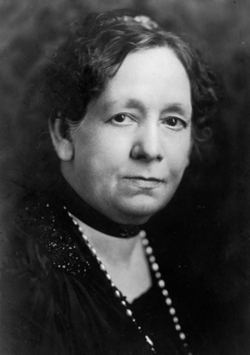
Biography:
A child of the American frontier, Mattie Sleeth was a fire and brimstone Methodist preacher who honed her skills on the prairies of Kansas and Nebraska before moving to Portland where she rose to statewide prominence as a suffragist and temperance advocate. She served as the first woman juror on an Oregon State court in 1922, after having worked for the passage by the Oregon Legislature of the Woman’s Jury Law of 1921. She served as the president of the Women’s Christian Temperance Union in Oregon from 1918 to 1920, which included the period when Congress passed the Volstead Act in 1919. She ran unsuccessfully for the state legislature in 1916, all the while traveling by stagecoach, train, and car advocating statewide for women’s rights and temperance.
Mattie Sleeth was part of a transitional generation of American feminists. Guided by Methodism’s commitment to temperance instilled in her through the preaching of frontier evangelicals, her fundamental commitment was to the moral purity of the individual in society. She lectured widely on women’s suffrage, fought city corruption in Portland, and lobbied for reform legislation. For her, morality and reform were synonymous.
Born on a farm in 1852 in Ohio, Mattie’s family came west circa the late 1850s during the days of “bleeding Kansas” as the state struggled over the issue of slavery. When the Civil War came, her father and four of five brothers enlisted in the Union Army. Mattie and the rest of the family survived the 1863 Lawrence Massacre by Confederate raider William Quantrill at Lawrence, Kansas during which nearly 200 people died. After serving for most of the late 19th Century as frontier ministers, Mattie and Asa followed their only child Dana Sleeth to Portland, circa 1903. While close to her son, Mattie would assuredly have looked down on his drinking and carousing with the likes of the writer Stewart Holbrook, socialist Tom Burns and other journalists and politicians as Dana worked on Scripps papers from Seattle to Portland to Los Angeles. Mother and son maintained homes next door to one another on Michigan Avenue in North Portland to the end of Mattie’s life.
Mattie attended the University of Kansas, at least through her sophomore year, while her husband was an 1869 graduate of Indiana Asbury College. Both Mattie and her husband were voracious readers. Late in life, Mattie added Hebrew to her command of both Latin and Greek. An intellectual, Progressive activist, a minister, and wife, she made her biggest mark on the public issues of her day in Oregon, where she died in 1934.
Scope and Content:
Mattie Sleeth’s papers are combined with those of her son Dana Sleeth, a progressive-era journalist employed by E.W. Scripps, and those of Asa Sleeth, Mattie’s husband, who was also a Methodist minister in North Portland, as well as an attorney, theologian and inventor. The collection includes photographs, ephemera and diaries from her travels, expense accounts, family letters and various poems and papers documenting her time in the Oregon WCTU and related activities both in the Democratic Party and in the Methodist Church. Also included are two papers from 1979 and 1981 on Mattie Sleeth by Janet Asteroff, then a student at Columbia University.
Partner Information:
Lewis & Clark College Special Collections and Archives
Aubrey R. Watzek Library
0615 SW Palatine Hill Rd.
Portland, OR 97219
Contact:
Doug Erickson, Head of Special Collections and Archives
503-768-7254
.(JavaScript must be enabled to view this email address)
Finding Aids:
Sister Miriam Theresa (Caroline Gleason) Papers
_1910,_crpd1_thumb.jpg)
Biography:
Sister Miriam Theresa (originally Caroline J. Gleason) helped shape Oregon’s social justice movement in the early 20th century. Born in 1886 to politically active Roman Catholic parents in Minneapolis, Minnesota, Gleason earned her bachelor’s degree and a teaching certificate at the University of Minnesota. Upon graduation in 1908, she moved to Portland and joined the faculty at St. Mary’s Academy. She did graduate work at the Chicago School of Civics and Philanthropy, and in 1912 was hired as the field secretary for the Catholic Women’s League in Portland.
In 1912, the Oregon Consumers League asked Gleason to organize a staff to survey women’s working conditions in Oregon’s factories, stores, and offices. Those findings became the data for Oregon’s passage of the nation’s first minimum wage and maximum hour law in 1913. The law created a new agency, the Industrial Welfare Commission, and Gleason became its first executive secretary.
Gleason became Sr. Miriam Theresa when she joined the Sisters of the Holy Names at Marylhurst, Oregon, in 1916. In 1924, Sister Miriam became the first woman to receive a Ph.D. from the School of Social Work at the Catholic University of America in Washington, D.C. She continued teaching at St. Mary’s Academy until 1930, when the Order opened Marylhurst College and she became the dean of the Sociology Department. Her doctoral dissertation on the Oregon labor movement was published by the U.S. Department of Labor in 1931.She died at the Marylhurst convent of the Holy Names Sisters on May 12, 1962, at the age of seventy-six.
Scope and Content:
The Sister Miriam Theresa (Caroline Gleason) Papers consist of documents relating to Caroline Gleason’s minimum wage law research and career prior to entering the Sisters of the Holy Names of Jesus and Mary (1913-1916). As Sister Miriam Theresa, the documents chronicle her life as a professor of social work (1937-1959) and her participation and interest in various groups related to social work and social justice (1916-1962). This collection comprises 6.51 cubic feet of documents and photographs.
Her papers are part of the Archives of the Sisters of the Holy Names of Jesus and Mary, U.S.–Ontario Province. Begun in 1859 with the sisters’ arrival in Portland from Quebec, the archives chronicles the lives and work of the Sisters of the Holy Names of Jesus and Mary as elementary, secondary and college educators in Oregon, Washington, California, New York, Maryland, Virginia, Washington, DC, Florida and Ontario. The sisters operated both parochial and their own private schools and universities, several of which still operate today. Records pertaining to the community’s governance, schools, convents and individual sisters are among those available for research.
The collections are comprised of documents, photographs, sound and film recordings, and art in a variety of mediums. Of particular note are the chronicles, or daily logs of convent life, that were kept in each convent from its foundation. These often contain reference to current events, including suffrage and the world wars.
Partner Information:
Holy Names Heritage Center
17425 Holy Names Drive
Lake Oswego, OR 97034
503-675-7128
Contact:
Sarah Cantor
Director of Archives
503-607-0595 x2
.(JavaScript must be enabled to view this email address)
Website:
http://www.holynamesheritagecenter.org/
Finding Aids:
Click here for finding aid as a PDFBetty Roberts Papers
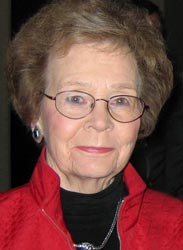
Biography:
Roberts’s political career began in 1964 when she was elected as a state representative in the Oregon legislature. Four years later, she was elected the sole woman in the state Senate. In 1974 she narrowly lost the Democratic gubernatorial primary. Later in 1974, she was chosen by the Democratic Party to run for the Oregon U.S. Senate seat but was defeated by incumbent Bob Packwood. In 1977, she was appointed to the Oregon Court of Appeals, where she became the first woman judge. In 1982, appointed by the Governor, she became the first woman to serve as an associate justice on the Oregon Supreme Court. After resigning from the Court, Justice Roberts served as a mediator and arbitrator for 18 years. Oregon State University Press published her autobiography “With Grit and By Grace, Breaking Trails in Politics and Law, A Memoir” in 2008. .Noteworthy, Roberts officiated over the first same-sex partnerships licensed through Multnomah County in 2004.
The Betty Roberts Papers comprises five linear feet of materials documenting Roberts’ campaigns for public office including her runs for the U.S. Senate and for the governor of Oregon. The collection also includes items related to Roberts’ work on same-sex partnerships. Note: Justice Roberts’ legislative and court papers are scheduled to be placed at the archive in the near future. Among them are files on the abortion issue, including the Oregon federal court case, the Equal Rights Amendment, as well as many other issues. Some speeches are included as are papers related to Roberts’ work in the founding of the Oregon Women Lawyers (OWLS) and her continued work with that organization.
The Betty Roberts Papers are part of the Oregon Political Leadership Archive, a Portland State University partnership between the Center for Women, Politics & Policy, the University Library, and the Department of History
Scope and Content:
The Betty Roberts Papers comprises five linear feet of materials documenting Roberts’ campaigns for public office including her runs for the U.S. Senate and for the governor of Oregon. The collection also includes items related to Roberts’ work on same-sex partnerships.
The Betty Roberts Papers are part of the Oregon Public Leadership Archive, a Portland State University partnership between the Center for Women, Politics & Policy, the University Library, and the Department of History.
Partner Information:
Special Collections, Portland State University Library
Portland State University Library - LIBW
Special Collections
Post Office Box 1151
Portland, OR 97207-1151
.(JavaScript must be enabled to view this email address)
Contact:
Cristine Paschild
University Archivist/Head of Special Collections
(503)725-9883
.(JavaScript must be enabled to view this email address)
Website:
http://library.pdx.edu/specialcollections.html
Finding Aids:
http://archon.archives.pdx.edu/index.php?p=collections/controlcard&id=43&q=betty+roberts
Barbara Roberts Papers
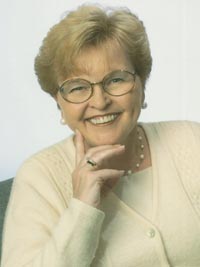
Biography:
Barbara Roberts was elected the first woman Governor of the state of Oregon in 1990, serving from 1991 through 1995. During her term as Governor, Roberts worked with the Clinton administration to secure federal waivers and funding for the Oregon Health Plan. She also helped to increase the number of children in the Head Start program, secured financing for additional units of affordable housing, and developed programs to help move Oregonians from welfare to the workplace. Prior to her tenure as Governor, Barbara Roberts was a member of the Oregon House and was Oregon’s first female House Majority Leader from 1983 to 1984. She was elected as the first Democratic women elected as Secretary of State in 1984—the first Democrat in 110 years—and reelected to that position in 1988. At Hatfield School of Government at Portland State University, Roberts served as Associate Director of Leadership Development at the, and she was the founding board chair of NEW (National Education for Women’s) Leadership Oregon, a program affiliated with the school.
The Barbara Roberts Papers are comprised of over 90 linear feet of materials documenting Roberts’ political career including correspondence, notes and manuscripts, speeches, photographs, and ephemera.
The Barbara Roberts Papers are part of the Oregon Public Leadership Archive, a Portland State University partnership between the Center for Women, Politics & Policy, the University Library, and the Department of History
Partner Information:
Special Collections, Portland State University Library
PO Box 1151, Portland, OR 97207
.(JavaScript must be enabled to view this email address)
Contact:
Cristine Paschild, Head of Special Collections & University Archivist
(503) 725-9883
Website:
http://library.pdx.edu/specialcollections.html
Finding Aids:
http://archon.archives.pdx.edu/index.php?p=creators/creator&id=4
http://arcweb.sos.state.or.us/governors/Roberts/Robertsbio.html
Norma Paulus Papers
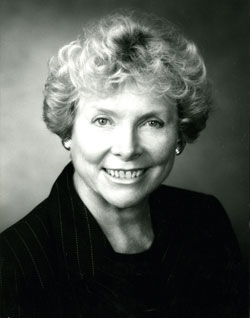
Biography:
Norma Jean Petersen Paulus was born in Nebraska in 1933, and raised in Burns, Oregon, graduating from the Burns Union High School in 1950. Her first job, as a secretary to the Harney County district attorney, led to work as a legal secretary in Salem, Oregon. Oregon Supreme Court Chief Justice Earl C. Latourette encouraged Paulus to apply to law school, based on her experience and expertise. Paulus entered Willamette University Law school in 1956 and graduated with honors in 1962. She went into private practice until she entered state politics in 1969.
Following three terms in the Oregon House of Representatives, Paulus became Oregon’s first woman Secretary of State, in 1976. She served in this office until 1985. As Secretary of State, Paulus dealt with several issues that gained national attention, including instituting emergency procedures in Waso County to block followers of the Bhagwan Shree Rajneesh from an attempt to sway local elections.
Paulus ran unsuccessfully for Governor in 1986, losing to Democrat Neil Goldschmidt. In 1990 Goldschmidt appointed her as Oregon Superintendent of Public Instruction. Paulus won election to a four year term later that year and was reelected in 1994. As state superintendent, Paulus introduced statewide assessment testing in 1991 and supported school to work initiatives for reforming public education.
Since leaving public office, Paulus has worked as the executive director of the Oregon Historical Society; served on the Oregon State Capitol Foundation Board; served on the boards of various organizations and helped raise funds for a statue honoring form governor Tom McCall. In 2004 she received University of Oregon’s Distinguished Service Award.
Scope and Content:
The Norma Paulus papers contain papers generated and received by Paulus’ office during her two terms representing the Eleventh District in the Oregon House of Representatives. Materials include copies of legislation she sponsored or co-sponsored, committee minutes and letters from constituents. Paulus was part of a record number of women in the Oregon State Legislature in 1971. Her papers reflect her interest in environmental issues, capitol planning and local government. They also provide insight into the political climate for women in the 1970s as well as into social mores regarding their participation.
The collection also includes photographs, campaign materials and scrapbooks of her time in the state legislature and as Oregon’s Secretary of State.
Partner Information:
Archives and Special Collections
Mark O. Hatfield Library
Willamette University
900 State Street
Salem, Oregon
97301 USA
Contact:
Mary McKay, University Archivist
503-370-6764
.(JavaScript must be enabled to view this email address)
Finding Aids:
http://nwda-db.wsulibs.wsu.edu/findaid/ark:/80444/xv29254
Oregon Women’s Political History Collections.

Biography:
The Oregon Women’s Political History Collections constitute a large grouping of individual manuscript collections with a common focus. These collections document the continuing efforts of women in Oregon to “promote equitable representation of women and women’s interests in the decision-making process of government by maximizing the inclusion and involvement of women in political activities through education and action.” These records of organizations and the personal papers of these women activists reveal their endeavors to achieve equal human rights for all people regardless of sex, color, race, or religion. The documents evidence as well their ongoing work to promote equitable representation of women in political office at the local, state, and national levels. The collections contain correspondence, reports, financial papers, publications, conference proceedings, and training materials. The Oregon Women’s Political History Collections include the records of the Oregon Women’s Political Caucus, the records of Oregon NOW, and many collections of individual women, including the Gretchen Kafoury Papers, the Margie Hendrikson Papers, the Eleanor Davis Papers, and the Merry Demarest Collection.
Partner Information:
Special Collections and University Archives
University of Oregon Libraries
1501 Kincaid Street
Eugene, OR 97405
Contact:
Linda Long, Manuscripts Librarian
(541) 346-1906
.(JavaScript must be enabled to view this email address)
Website:
http://libweb.uoregon.edu/speccoll/
Finding Aids:
Individual finding aids are not yet available, but the collections are accessible for research. Contact the repository for more
Esther Pohl Lovejoy Papers
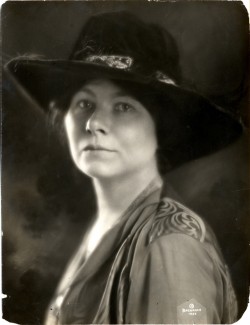
Biography:
Esther Clayson was born in Seabeck, Washington Territory November 16, 1869. In 1894 she graduated as the second woman to graduate from the University of Oregon Medical School and the first woman to practice. In 1898 she followed her husband, Dr. Emil Pohl, to Alaska for the gold rush. Emil died of encephalitis in 1909. Her brother Fred was murdered on the Dawson trail and she lost her only child Frederick at the age of eight to an ulcer of the bowel. Despite these difficulties she practiced medicine in Portland where she became the first female to hold the post of chairman of the Health Department (1907- 1909) in a city of that size. She installed the city’s first school nurse, wrote its first milk ordinance and demanded sweeping reforms in food handling.
She was an outspoken advocate for women and joined women’s suffrage groups and eventually ran as representative to Congress. When she left the health department she became head of the department of obstetrics and gynecology in the Portland medical group of Coffey, Sears, Jones and Joyce. During this period she married Portland businessman George Lovejoy.
Dr. Lovejoy served during World War I with the American Red Cross and in 1919 became the president of the American Women’s Hospital Service. In this capacity she traveled widely to alleviate suffering from war, disaster, famine, revolution and poverty. She organized the relief services of the AWHS throughout the Near East and especially in Greece. A bust of Dr. Lovejoy stands in the town square of Nikea, Piraeus, Greece.
Esther also was the first president of the Medical Women’s International Association of which she helped to found in 1919. A mural with a portrait of Dr. Lovejoy is displayed in the Esther Pohl Lovejoy Hall at the Philippine Medical Women’s Association building in Manila.
In 1938 she finished, Women Physicians and Surgeons, a monumental task completed by researching archives and searching in attics all over the world. Twenty years later she published Women Doctors of the World. Her next book, Certain Samaritans, documented the complex work of the AWHS.
She lived without extravagance and worked endless hours. In 1963, four years before her death she traveled to Alaska, Tokyo, Hong Kong and Manila. She revisited the University of Oregon Medical School where she had established the Pohl Memorial Scholarship Funded in memory of her first husband and son, saying that she was glad to have had “the chance to remind the trustees that one third of the scholarships should go to girls”. Esther Pohl Lovejoy died at 97 years of age and was buried at the Lone Fir Cemetery in 1967.
Scope and Content:
The collection consists of manuscripts, documents, photographs, news clippings, press releases, correspondence, publications, and biographical data pertaining to the personal and professional life of Esther Pohl Lovejoy.
Partner Information:
Oregon Health & Science University
Historical Collections & Archive
3181 SW Sam Jackson Park Road
Mail Code: LIB
Portland, Oregon 97239-3098
503-494-3239
Contact:
Karen Lea Anderson Peterson, MA
Archivist-Assistant Professor
.(JavaScript must be enabled to view this email address)
Website:
http://www.ohsu.edu/xd/education/library/about/collections/historical-collections-archives/
Finding Aids:
http://nwda-db.orbiscascade.org/findaid/ark:/80444/xv19631
Darlene Hooley Papers
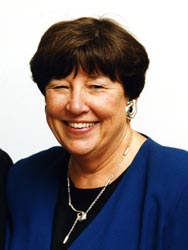
Biography:
Darlene Olson Hooley (1939- ) entered local politics in 1976 because the city of West Linn was slow to respond when her son was injured on a public playground. She became the first woman member of the West Linn city council and worked for family safety and protections for working families. From 1980 until 1987 Hooley represented Clackamas County in Oregon State’s Legislature, where she focused on bills dealing with public kindergartens, equity pay and reform of the state’s welfare system. Hooley again broke new ground in 1987 when she became the first woman elected to the Clackamas County board of commissioners. In 1996 she was elected a Democratic member of the U.S. House of Representatives and was a member of the One Hundred Fifth to the One Hundred Tenth Congresses (January 3, 1997-January 3, 2009).
During her first term in the U.S. Congress, Hooley was elected House Democratic freshman class president. Additionally, during her tenure, she was a House Senior Whip for the Democratic Party and a member of the New Democrat Coalition. As a member of the House Financial Services Committee she advocated adapting banking laws and acting to disrupt the financial foundations of terrorist networks and focused on issues surrounding identity theft prevention and increasing medical and financial privacy. In 2003, she was a key sponsor of the Fair and Accurate Credit Transaction Act (HR 2622), which gave Americans the right to free credit reports. A staunch advocate of a federal prohibition of online poker, Hooley cosponsored H.R. 4411, the Goodlatte-Leach Internet Gambling Prohibition Act, in 2006.
In 2002 Hooley voted against the authorization of the use of military force in Iraq. As a member of the Veterans’ Affairs committee, she focused on issues of veterans’ health care and deployment of National Guard troops to the Iraq War.
Scope and Content:
The Darlene Hooley papers contain materials generated by her office during her four terms in the Oregon State Legislature and her six terms representing Oregon’s Fifth District in the United States Congress from January 3, 1997 through January 3, 2009. Materials in the collection focus on her work with the Appropriations Committee with an emphasis on the projects she helped in the greater Portland area.
Partner Information:
Archives and Special Collections
Mark O. Hatfield Library
Willamette University
900 State Street
Salem, Oregon
97301 USA
Contact:
Mary McKay, University Archivist
503-370-6764
.(JavaScript must be enabled to view this email address)
Finding Aids:
http://nwda-db.orbiscascade.org/findaid/ark:/80444/xv32614
Carrie Hervin Papers
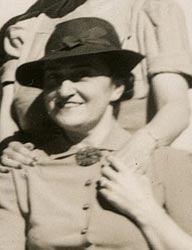
Biography:
Today I warn people, “When you go into a new organization, don’t get up too soon to express a view or articulate an idea because immediately you are pegged.”[Carrie Hervin]
Carrie Hervin (1893-1989) found herself “pegged” when she attended a meeting of the League of Women Voters. The Portland League wasted no time in employing her leadership skills and she became president during World War II. With the demand for women’s volunteer hours stretched thin by the needs of the war – rolling bandages, serving on alert systems, etc., she recognized an opportunity to infuse the organization with purpose. When told that “If you can just hold the organization together until the end of the war, that is all that can be expected.” Hervin responded, “If that is all you want, I will never accept the presidency. If the League of Women Voters does not have a purpose to serve during a time of war, it should just disband.”
Hervin made it her mission to ensure that the most representative persons
possible were running for office, and that “questionable measures” were not put over on the American people while the nation’s attention was diverted to the war. She believed and furthered the role of the League as the “watch dog” of the government.
Hervin received many invitations to join other organizations but she was always careful to join only where she felt she had the time and skills to make a difference. She attributed her extensive commitment to community service to lessons she learned from her father, Israel Bromberg. He taught her to believe that she owed something to her community.
Scope and Content:
Oregon Jewish Museum Oral History Project. Interview with Carrie Hervin
Partner Information:
Oregon Jewish Museum
1953 NW Kearney Street
Portland OR 97209
503/226-3600
Contact:
Anne LeVant Prahl
Curator of Collections
503/226-3600 ext. 102
.(JavaScript must be enabled to view this email address)
Website:
Finding Aids:
Edith Green Papers
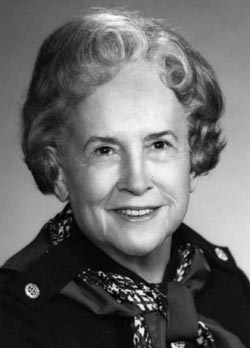
Biography:
Edith Green served ten consecutive terms in the United States House of Representatives, from 1955 to 1974, as the Representative for the 3rd District of the State of Oregon. A schoolteacher turned politician, she was active in all aspect of Democratic Party politics and was especially interested in educational issues and women’s rights. She served on the Committee on Education and Labor and other House committees, and was appointed by Pres. Kennedy to the President’s Commission on the Status of Women. She championed the Equal Pay Act of 1963 and was instrumental in passing major education legislation, including the National Defense Education Act (1958), the Higher Education Facilities Act (1963), as well as the Higher Education Acts of 1965 and 1972.
The collection consists of documents from Edith Green’s legislative career, and documents Mrs. Green’s strong advocacy for education, civil rights, fair labor practices, and gender equity, as well as other issues of importance to her constituency in Oregon. Materials include professional correspondence, legislative research, and documents from the committees on which Green served, including the Committee on Education and Labor. Correspondents include William F. Gaul, Mark Hatfield, John F. Kennedy, Robert F. Kennedy, Wayne Morse, Charles Porter, Terry Schrunk, Richard Neuberger, Walter Norblad, and Al Ullman.
Partner Information:
Oregon Historical Society Research Library
1200 SW Park Avenue
Portland, OR 97205
Contact:
Geoff Wexler
Library Manager,
503-306-5241
.(JavaScript must be enabled to view this email address)
Website:
http://www.ohs.org/research/library/
Finding Aids:
http://nwda-db.orbiscascade.org/findaid/ark:/80444/xv98937
Avel L. Gordly Papers
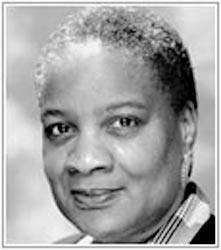
Biography:
Avel L. Gordly was the first African American woman to be elected to the Oregon State Senate, representing Oregon Senate’s 23rd District from 1997 to 2009. Prior to her service as a Senator, Gordly was a member of the Oregon House of Representatives from 1991 to 1996. A native of Portland, Gordly is the daughter of a Union Pacific Pullman porter and a working mother active in women’s organizations. She holds a Bachelor of Science degree in the Administration of Justice from Portland State University and completed the Program for Senior Executives at the John F. Kennedy School of Government, Harvard University.
During her legislative career, Gordly was a chief petitioner for Oregon’s minimum wage law in 1995, establishing Oregon’s minimum as the highest in the nation at the time, and for Measure 14, an amendment that removed the remaining racist language from the Oregon Constitution, which was passed by popular vote in 2000.
During the 2003 legislative session, Sen. Gordly organized a ceremony marking the 50-year anniversary of Oregon’s Public Accommodations Law, featuring retired Senator Mark O. Hatfield, then a member of the Oregon House of Representatives, carried the bill to passage. The 1953 law was the culmination of nearly four decades of hard, painful and self-sacrificing struggle by African American Oregon citizens to end racial discrimination in places of public accommodation.
Gordly’s advocacy for education, from pre-school through a quality education for all children, resulted in her work with Albina Head Start and the Saturday School of the Black United Front. She is a Senior Fellow of the American Leadership Forum and has a long professional career including service as an Adult Parole and Probation Officer for the State of Oregon Corrections Division; as Director of Youth Services for the Urban League of Portland; as Community Liaison for the Multnomah County Health Department, where she worked on the County’s emergency preparedness and health disparity issues.
Gordly’s career as a community leader and public servant includes Program Director of the House of Umoja, providing services to gang-impacted youth and families, and as Executive Director of the American Friends Service Committee, Portland office.
In 2008, in recognition of Gordly’s ongoing advocacy for mental health issues and her role as the founder of the African-American Mental Health Commission, Oregon Health Sciences University opened the Avel Gordly Center for Healing.
Avel Gordly is currently an Associate Professor in the Black Studies Department, Portland State University, where she has developed and teaches a course on Black leadership, public policy, and community development. Her memoir: Remembering the Power of Words: The Life of an Oregon Activist, Legislator and Public Servant was published by the Oregon State University Press in 2011.
The Avel L. Gordly papers comprise approximately 50 linear feet of records, including correspondence, speeches, photographs, videos, publications, and other materials representing Gorldy’s work with legislation and advocacy.
The Gordly Papers are a shared gift from the Hon. Avel Gordly to the Portland State University Library’s Special Collections and Portland State University’s Black Studies Department.
Partner Information:
Special Collections, Portland State University Library
PO Box 1151, Portland, OR 97207
Contact:
Cristine Paschild, Head of Special Collections & University Archivist
(503) 725-9883
.(JavaScript must be enabled to view this email address)
Website:
http://library.pdx.edu/specialcollections.html
Finding Aids:
http://archon.archives.pdx.edu/index.php?p=collections/controlcard&id=16&q=avel+
Abigail Scott Duniway Papers
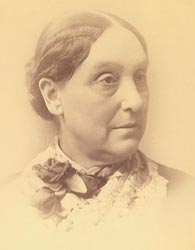
Biography:
Abigail Scott Duniway, born October 22, 1834, was an indefatigable leader in the women’s suffrage movement in Oregon and the Northwest. In her life she encountered both personal setbacks and political obstacles. She suffered poor health, money problems, and opposition from her own brother Harvey Scott, editor of the Portland Oregonian. She met with local resistance to women’s suffrage, witnessed the consistent failure of women’s suffrage referendums on state ballots, and grappled with divisions with Eastern suffrage organizations. Yet she persisted, and her steadfast determination paid off in 1912 when Oregon became the seventh state in the Union to pass a women’s suffrage amendment. Governor Oswald West asked Duniway to write the proclamation for his signature. Duniway had the honor of being the first woman to register to vote in Oregon. Abigail Jane Scott Duniway died on October 11, 1915.
Scope and Content:
This collection contains documents pertaining to Duniway’s suffrage work, her correspondence, published and unpublished literary works, and newspaper clippings and scrapbooks detailing Duniway’s political and social work.
Partner Information:
Special Collections and University Archives
University of Oregon Libraries
1501 Kincaid Street
Eugene, OR 97405
Contact:
Linda Long, Manuscripts Librarian
(541) 346-1906
.(JavaScript must be enabled to view this email address)
Website:
http://libweb.uoregon.edu/speccoll/
Finding Aids:
http://nwda-db.orbiscascade.org/findaid/ark:/80444/xv63619
Eva Emery Dye Papers
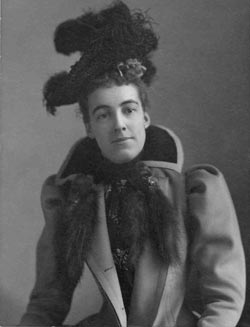
Biography:
The papers of one of Oregon’s most prominent literary figures, who popularized Oregon Country history and Sacajawea as a heroine of the Lewis and Clark Expedition. Eva Emery Dye (1855-1947) was a native of Illinois who worked her way through Oberlin College as an elementary school teacher. She married lawyer Charles Henry Dye in 1882 and came with him to Oregon City in 1890. She soon became a prominent figure in Oregon’s literary and historical circles, and her extensive writings include McLoughlin and old Oregon (1900) and The conquest : the true story of Lewis and Clark (1902). Among their many civic activities, Dye and her husband jointly founded the Willamette Valley Chautauqua and were involved in the state’s Republican Party. Eva, with her husband’s full support, took an active role in the woman’s suffrage movement, the Sacajawea Statue Association, and the effort to preserve the John McLoughlin house in Oregon City.
Scope and Content:
The Dye papers (1776-1997) consist of correspondence, ephemera, manuscripts, literary journal, research notes, and scrapbooks. Also included are family papers. The voluminous correspondence includes prominent figures in Oregon’s cultural and political life, as well as those active in the suffrage movement. OHS also holds an associated collection of Dye’s family photographs (Org. Lot 1017).
Partner Information:
Oregon Historical Society Research Library
1200 SW Park Avenue
Portland, OR 97205
Contact:
Geoff Wexler
Library Manager
503-306-5241
.(JavaScript must be enabled to view this email address)
Website:
http://www.ohs.org/research/library/















